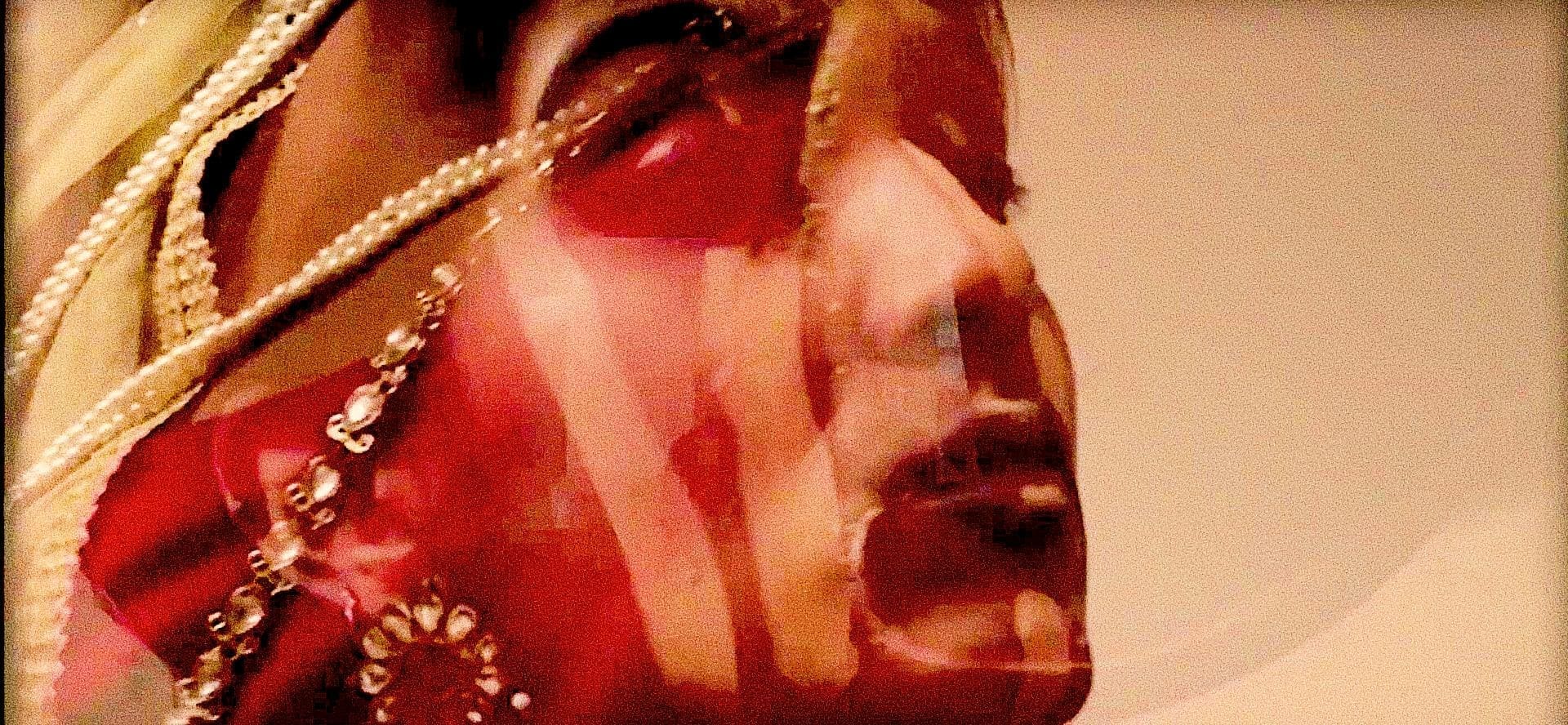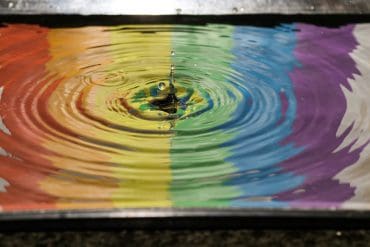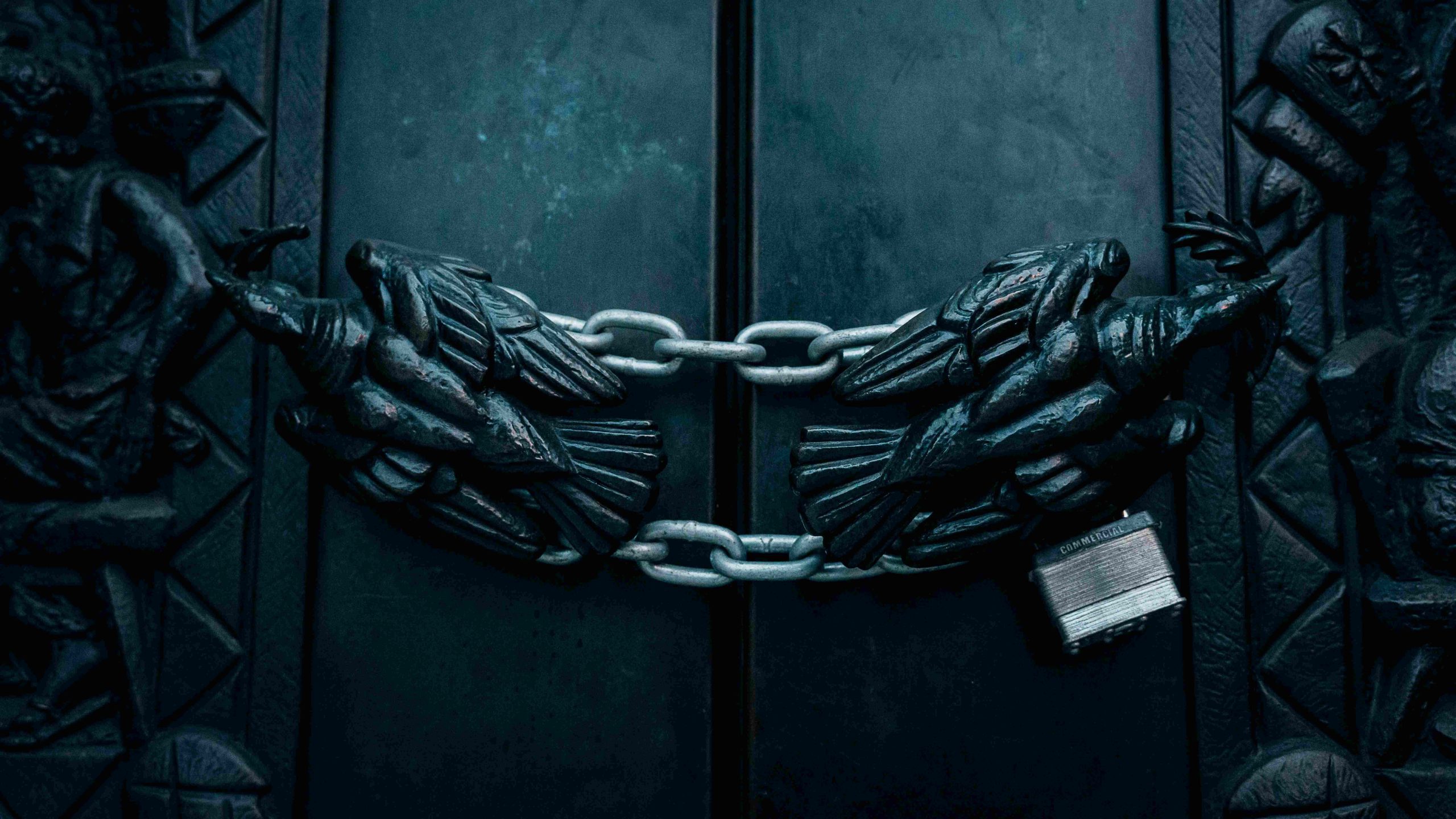The Karen Disorder: Breaking Free from the Chains of Institutional Labels
Author’s Memo
The Karen Disorder emerges from my research in the field of illness and identity. At question for me in the bigger work (now in progress) is this: what impact does institutional language have on one’s effort to rebuild a sense of self after being felled by a crippling disease or a life-altering accident? How does institutional language play on one’s challenge to rebuild a shattered sense of self? How do those of us afflicted enter into a recovery process colonized by language that subjugates us into stereotypes?
What impact does institutional language have on one’s effort to rebuild a sense of self after being felled by a crippling disease or a life-altering accident?
Every society of every culture, particularly in Western civilization, develops a vocabulary that serves to codify the identity of its members. Through my 1980’s experience as a patient in a psychiatric hospital, and subsequent academic work in language centered theories of human behavior, I am able to provide an ethnographic account of one’s individual struggle with labels of identity that seemed forged in chains.
Every society of every culture, particularly in Western civilization, develops a vocabulary that serves to codify the identity of its members.
By using the landscape of my personal experience as the ground for observing how institutional language reorganizes one’s identity as she makes her way through recovery, it is hoped readers may avoid living into the definitive institutional language that entraps one’s personhood in a rhetorical identity.

I am a Karen. A real Karen. One of the good ones, too – not a pop-cult slang “Karen” whose rhetorical identity is that of a white woman perceived as entitled, demanding, maybe even racist, and using their white class privilege to bully their way through Costco. Nope, that’s a disorder way different than mine.
My disorder evolved over decades. I think it got its start when I was labeled epileptic, having ended up in the ER after one trembling, mouth-watering episode when I was 21 years old. No, wait. I think the etiology of my disorder can be traced to early childhood when family elders identified me as lazy, careless, clumsy. Yes. That’s probably the starting point. And then, in grammar school when I was signaled out as a trouble maker by teachers whose misfortune it was to have my older brothers as students. By virtue of their reputations, I was a sort of ipso facto delinquent, on top of which I was a “Group 3” student which signified, not smart, poor learner, inattentive, disruptive . . . . (ADD was not a label available to children of the 50’s, or I suppose I would’ve been labeled that as well.)
Indeed, over my teen years my magnetic powers were epic, such were the labels attaching to me. Fat, stupid, lazy, clumsy, careless, juvenile delinquent. . . . By the time I passed through the K-12 Education system, I needed two rolling back packs to lug around my identity.
‘I am a Karen. A real Karen. One of the good ones, too – not a pop-cult slang “Karen” whose rhetorical identity is that of a white woman perceived as entitled, demanding, maybe even racist, and using their white class privilege to bully their way through Costco. Nope, that’s a disorder way different than mine.
By the time I reached the big 30, doctors and other medical professionals had bestowed on me a whole host of descriptors indicative of their diagnostic genius: osteoporosis, RA, asthma, Crohn’s, neuropathy, and that epilepsy thing, to name a few.
Then, by the time I was released from the psychiatric hospital, a few years short of my 40th birthday in 1985, I was weighted down with bi-polar manic depressive, dissociative disorder, delusional, schizoid, psychotic…. For sure, there were other words in my medical record, words suggesting potential recovery: self-esteem, self-confidence, ego, id, libido. None of those were part of the burden of my load.
Some months following my release from the mental hospital, me having been medicated into normal with lithium and anti-psychotics, I asked the psychiatrist assigned to my case what brought this on –this psychosis. “Why am I here?”
“We have to monitor you while you’re on medication,” he said.
“Right, but how’d I get here? One day I wake up ‘mentally ill’? How’s that happen? And now I’m a psychotic?”
“Well, one break does not a psychotic make,” he interjected with what I’m sure he thought was a kind, sympathetic smile. Frankly, I thought he was showing off his ability for non-shrink speak with that clever turn of phrase. I wondered how many times he’d used it on other novice psychotics.
‘By the time I reached the big 30, doctors and other medical professionals had bestowed on me a whole host of descriptors indicative of their diagnostic genius: osteoporosis, RA, asthma, Crohn’s, neuropathy, and that epilepsy thing, to name a few.
He then launched into a lecture in the abstract, reciting the number of ways in which one might experience a break with reality, mentioning drugs, alcohol, Peyote, mushrooms — none of which had anything to do with me. As for me, specifically, he said he believed my break was the result of PTSD. I had to ask, “What’s that?” His explanation made no sense to me whatsoever for I’d never experienced war; had never undergone anything “traumatic.” No fires, floods, or disastrous events of any kind.
In the following weeks, I dwelt heavily on the acronym PTSD which had been thrown into the mix of all those other labels shaping my ever-unfolding identity. I even researched the symptomatology of being stressed. I scoured my life for anything one might consider traumatic but nothing came up that linked me to PTSD, unless – well, there was that car accident.
When I was 25, my husband and I were in a horrific car accident. I was in the first trimester of pregnancy. My injuries seemed minor to me, given the severity of the accident. I came away with two broken arms, one of which had to be surgically repaired. I was in hospital a week. Husband Tom had a few stitches to the forehead and was otherwise OK. A few days following my release I was experiencing severe stomach pain. I was rushed to ER. An OBGYN specialist was called in on behalf of my situation. They prepped me for a laparoscopic procedure, something exploratory, and the specialist prepared me for several possible outcomes: losing the baby; hysterectomy; death.
At least I didn’t die.
The thing of it is this: no part of my identity at 25 years old was tied to motherhood. I was thoroughly ambivalent about having babies. In fact, I was ambivalent about marriage. None of my wild, adventurous dreams of adulthood included marriage, motherhood, or anything approximating “conventional.” Yes, those possibilities lingered in the periphery of my prescient dreams but I did not quest after them the way I quested after the life of a globe-trotting, adventure-seeking writer. Clearly, though, I was not ambivalent to love and romance.
‘At least I didn’t die.
SIDE NOTE: I’d been seeing a man I thought I was crazy about when my now husband, Tom, entered my life (1970). He swept me off my flat feet, and we eloped three months later. I’ve been with Tom and his stitched up forehead for 54 years. END SIDE NOTE.
Back to 1985. During the month between psychiatric visits, having evaluated PTSD in conjunction with my existential being, womb to the wonder drug Lithium, I tried to determine how all these pieces fit together. I was trying to make sense of how I became mentally ill. During my next check in, I told the shrink, “None of this makes sense. There’s no history of mental illness in my family. As for manic depressive – what is that, like mood swings or something?”
“Or something,” he said. He then explained how an imbalance in brain chemistry may cause severe swings in behavior. I confess I did find some parallels between his clinical description of behaviors and my bouts of enthusiasm and ennui, but nothing requiring I be drugged into oblivion.
“I want off these drugs,” I said. He said in the case of the anti-psychotic medications we might give it a try. But, in the case of Lithium, he assured me I’d be on it for the rest of my life. He then gave me instructions on weaning off Stelazine. I used that protocol to wean off all the other drugs too, and I cancelled my next appointment.
I dug up a Mood Ring in the cigar box of my secret stash of childhood memorabilia. I relied on it to alert me to changes in mood. It was a very effective tool and I proudly displayed the ring on my finger at my next appointment. The psychiatrist dismissed – no, he disparaged my Mood Ring solution and inferred I was nuts. He actually dissociated me from his wellness clinic, refusing to treat me if I didn’t take meds. Good thing I’m ambivalent to rejection.
In 1994, some years short of my 50th birthday, my employer sent me an application for supplemental health insurance. There were columns of words beneath the question, Have you ever had any of the following: (Check all that apply). It was a devastating moment of realization. The only boxes I did not check were Malaria, Polio, Hemophilia, and Prostate Cancer.
Suddenly, I was sucked into a vortex, entrapped in a linguistic whirlwind of words serving to identify me – all of me; forward, back, inside out, top to bottom. Not just medical terms, either. Or words out of the discipline of psychiatry, or the labels used by diagnosticians from Education, Religion, Social Welfare, Judicial and other institutional systems. In one moment of epiphany every word used on me to describe who I am, what I am, how I am, marched into formation and chanted, in chorus, in rhythm, perfectly syncopated This is your I-dent-it-y, I-dent-it-y, I-dent-it-y. . . !
I tore up the form and dumped it in the shredder. I requested a new insurance application. The only box I checked was “Other” and in the space requiring Explain, I wrote “Karen Disordered.” My release from the vortex was immediate. It would be an understatement to say I felt reborn. Everything about my life made sense in that moment.
I did not secure supplemental medical insurance, but I did certainly secure a sense of self that was real, that was all mine. I’d long ago established my sense of agency, having been identified as mentally ill and later making choices that suited my endurance despite the stigma of mental illness.
In the words of Toni Morrison, “Definitions belong to the definers – not the defined.” I keep that in the forefront of my thoughts as I venture into 2025, and the “Project” driving the coming administration here in America.
Institutional language is a species of verbiage that is ever evolving, even mutating. There are now political regimes spewing seriously harmful rhetoric meant to destabilize and dismantle your identity. No matter your race, religion, gender, pronoun preference or any other preference of your personhood, your identity is at risk. Cautionary tale? “Know thy self.” We all need to critically consider what labels of identification others try to put on us–be they Institutional others like Doctors, Clergy, Teachers, Politicians, Sociologists, or family, friends and associates.
I am not a Karen of rhetorical identity. Neither am I a mentally ill Karen suffering the effects of PTSD. Nor am I any part of that constellation of health challenges ascribed to my age group. And maybe that’s what makes me disordered. My obstinacy to be classified, codified, pigeon holed. For me, a Karen Disorder is so much more manageable than all the socio-political, intra-cultural disorders plaguing my well-being here in the 21st century.
Sources influencing my work in language centered theories of human behavior are many. For this essay I wish to especially acknowledge:
Kenneth Burke (1897-1993) Language as Symbolic Action: Essays on Life, Literature, and Method, Berkeley: University of California Press, 1966.
Toni Morrison (1931-2019) The Source of Self-Regard: Selected Essays, Speeches, and Meditations. (See particularly Part II. “God’s Language”) Vintage Books, 2020.
Credits
Featured image by Thom Milkovic for Unsplash
Image by By Dylan Crawford for Unsplash
Learn More
New to autoethnography? Visit What Is Autoethnography? How Can I Learn More? to learn about autoethnographic writing and expressive arts. Interested in contributing? Then, view our editorial board’s What Do Editors Look for When Reviewing Evocative Autoethnographic Work?. Accordingly, check out our Submissions page. View Our Team in order to learn about our editorial board. Please see our Work with Us page to learn about volunteering at The AutoEthnographer. Visit Scholarships to learn about our annual student scholarship competition
Karen FitzGerald has an MA in English Literature with a specialty in language centered theories of human behavior. She is a genre-fluid writer; recent work has appeared in Ekphrastic Review, Written Tales, and other publications. She's currently working on her first novel.









